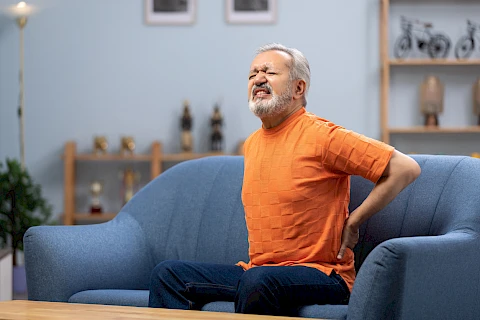
Pain management is crucial for seniors because untreated pain can lead to reduced mobility, poor sleep, and a decline in overall quality of life. Proper pain management helps maintain independence, prevents complications like depression or anxiety, and improves daily functioning. As we age, our bodies undergo numerous changes that can lead to various types of pain. Addressing these pains can significantly enhance the quality of life for anyone suffering from chronic conditions.
Common Types of Pain in Seniors
Seniors often experience chronic pain conditions like arthritis and neuropathy. These conditions can reduce mobility and affect day-to-day activities. Pain perception also changes with age, making management more challenging. As the body ages, the nerve endings might become more sensitive, and the capacity to recover quickly diminishes. Understanding these changes is essential in developing effective pain management strategies.
Non-Medical Comfort Measures
While medication can be helpful, non-medical approaches are also valuable in managing pain. Therapies like massage and acupuncture have been found effective for many seniors. These treatments can help reduce discomfort and improve mobility without needing medication.
A supportive environment focusing on emotional well-being is crucial for managing pain in seniors because it promotes emotional well-being, encourages treatment adherence, and provides physical and social support for daily activities. Seniors who engage in social activities and maintain strong emotional connections often report lower levels of pain. Also, proper nutrition and hydration play pivotal roles. A balanced diet and adequate fluid intake can help reduce inflammation and ease certain pain conditions.
Activity Modifications for Pain Relief
Staying active, despite the presence of pain, is important for overall health. Low-impact exercises such as walking, swimming, or yoga can keep joints flexible without adding stress. Seniors should talk to their doctor before starting any new workout program or activity.
Activities tailored to individual capabilities prevent further pain and enhance physical well-being. Daily routines may require adaptations to minimize discomfort. Using ergonomic tools in the kitchen, avoiding heavy lifting, or using assistive devices when necessary can all contribute to effective pain management. Making these small changes can significantly improve a senior's comfort and mobility.
Enhancing Quality of Life
Managing pain is not just about reducing discomfort but about maintaining independence and mobility. Encouraging seniors to stay active within their capabilities can improve both physical and mental health. Social connections play an essential role here. Engaging with family, friends, or community groups can uplift mental health and divert attention from pain.
Family and caregivers play a pivotal role in supporting seniors. They can assist in managing daily activities, ensuring that seniors remain as independent as possible while providing needed support. Together, they can form a network of care that fosters an improved quality of life.
Provide a Better Quality of Life for Senior Loved Ones
Managing pain in seniors includes understanding the types of pain they face, using non-medical comfort measures, and adapting activities to individual needs. Focusing on these areas can greatly enhance a senior's quality of life. It's important not to hesitate in seeking professional help to tailor pain management strategies that suit individual requirements.
At Senior Helpers Kelowna, we support seniors and their families in Kelowna, West Kelowna, Penticton, and the surrounding areas. Our expertise can positively affect managing pain and maintaining an active, fulfilling lifestyle. Contact us today for personalized assistance to improve the quality of life for you or your loved one.